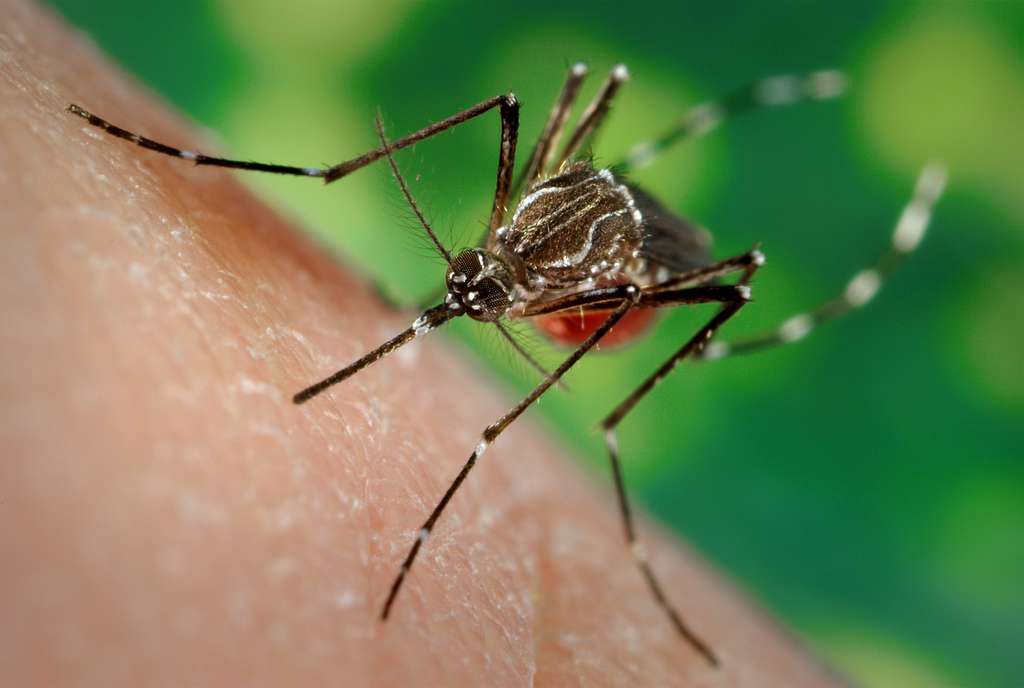Hemp-derived CBD could prove to be an effective and environmentally friendly insecticide, according to a study by U.S. researchers. The study, published in the scientific journal Insects, showed that CBD can wipe out larvae in two troublesome strains of mosquitoes in their early stages of development – within 48 hours.
The research, led by a team at Ohio State University, marks a promising breakthrough in the ongoing fight against insecticide resistance, particularly in the case of mosquito species such as Aedes aegypti, which transmit deadly yellow fever, dengue, and Zika viruses.
“It’s very important to be able to control these pests at an early stage, when they are at their most vulnerable,” said Erick Martinez Rodriguez, a graduate student in entomology at Ohio State and lead author of the research report. He noted that targeting mosquitoes in their larval stage, before they mature and spread diseases over large distances, is critical for effective pest management.
Stubborn strains
The breakthrough comes as mosquito populations around the world are developing genetic mutations to ward off conventional insecticides, posing serious challenges for global control programs. One strain of Aedes aegypti – the Puerto Rican strain – has shown stubborn resistance to commonly used synthetic insecticides, which target the nervous system of mosquitoes.
CBD, however, has shown the ability to bypass these metabolic defenses.
The Ohio State researchers extracted CBD by pulverizing dried hemp leaves and soaking them in methanol to create a potent solution. The study found that even a small amount of CBD-rich extract was lethal to mosquito larvae.
“What was surprising was the small amount needed to be so deadly,” Rodriguez said of the potential for the eco-friendly alternative to synthetic insecticides, which often have harmful environmental side effects due to overuse.
Natural insecticides
This discovery is part of a growing body of research into plant-derived insecticides. Previous studies from Ohio State identified natural mosquito-repellent properties in plants from Madagascar, which inspired the team to explore hemp.
Study co-author Peter Piermarini, a professor of entomology at Ohio State, said CBD could be an attractive candidate for broader pest management strategies. “It’ll be interesting to learn more about how CBD interacts with various proteins in mammals and insects to understand why it’s safe for people but not insects,” he said.
However, Piermarini emphasized the need for more research into how CBD-based insecticides could affect non-target species, such as honeybees, which play a critical role in pollination and biodiversity.
More research needed
While the findings are promising, they raise questions about the ecological impact of widespread CBD use in pest control. Mosquito larvae thrive in aquatic environments, and introducing CBD-based insecticides into these habitats requires a careful examination of how non-target aquatic species might be affected, the researchers noted. Protecting biodiversity while controlling pests is a delicate balance, and future research is needed to assess potential unintended consequences, they added.
Researchers also see potential in refining extraction methodologies for CBD-based insecticides, ensuring they are efficient and environmentally sustainable. This could involve optimizing the concentration of CBD to make it more effective at lower doses, further minimizing its ecological footprint.
Biopesticide revolution?
The study opens several new avenues for research, including the efficacy of CBD against other insect species resistant to traditional insecticides. If CBD can be adapted to control a broader range of pests, it could revolutionize the biopesticide industry, offering a natural and eco-friendly alternative to synthetic chemicals.
Additionally, there is potential for genetic engineering approaches that could enhance the insecticidal properties of hemp, making it an even more powerful tool in pest control.
“Understanding how these natural compounds interact with different insect species will be crucial for developing safe, targeted pest control methods,” Rodriguez said, noting that the ultimate goal is to create solutions that reduce environmental harm while remaining effective against resistant pests.
The research was supported by the Infectious Diseases Institute and Ohio State’s College of Food, Agricultural, and Environmental Sciences. The journal Insects, which is peer-reviewed, is an open-access journal by the Basel, Switzerland-based Multidisciplinary Digital Publishing Institute.

